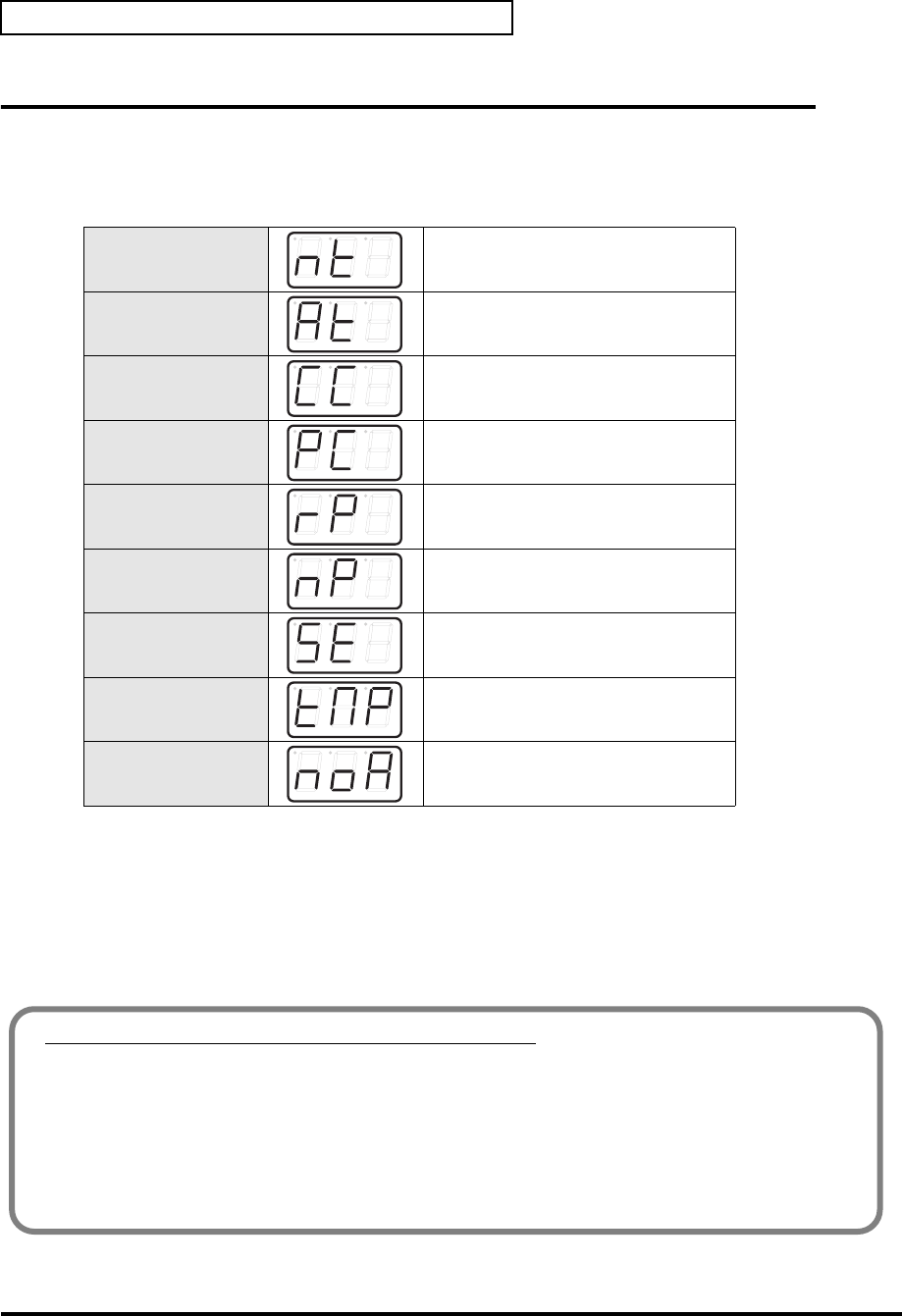
126
Edit mode (EDIT)
Controller settings
You can assign the following functions to a controller.
* After you have modified the controller settings, perform the “SAVE” (p. 148) operation as needed. If you
turn off the power without executing “SAVE”, your changes will be lost.
A Copy function is also available. For the procedure, refer to “ASSIGN COPY” (p. 147).
* For NOTE, AFTERTOUCH, CONTROL CHANGE, PROGRAM CHANGE, RPN, NRPN, and
SYSTEM Ex., the rightmost digit (third place) in the display is a number that indicates the mode (Basic mode
or Advanced mode).
* If you want to assign a single-byte system message (system realtime message, tune request) or a freely
specified message of up to 24 bytes, refer to “SYS EX. ASSIGN” (p. 140).
NOTE “NOTE ASSIGN” (p. 127)
AFTERTOUCH “AFTERTOUCH ASSIGN” (p. 129)
CONTROL CHANGE “CONTROL CHANGE ASSIGN” (p. 132)
PROGRAM CHANGE “PROGRAM CHANGE ASSIGN” (p. 135)
RPN “RPN/NRPN ASSIGN” (p. 138)
NRPN “RPN/NRPN ASSIGN” (p. 138)
SYSTEM Ex. “SYS EX. ASSIGN” (p. 140)
TEMPO “TEMPO ASSIGN” (p. 146)
NO ASSIGN “NO ASSIGN” (p. 146)
How Basic mode and Advanced mode differ
Each assignment can be made either in Basic mode or Advanced mode.
Use the mode that is appropriate for your purpose.
•Basic mode You can make assignments easily, with the minimum number of steps.
•Advanced mode A greater number of steps are required, but you can specify more
parameters and make more sophisticated assignments.


















